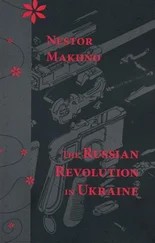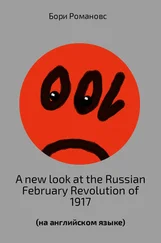Richard Pipes - The Russian Revolution
Здесь есть возможность читать онлайн «Richard Pipes - The Russian Revolution» весь текст электронной книги совершенно бесплатно (целиком полную версию без сокращений). В некоторых случаях можно слушать аудио, скачать через торрент в формате fb2 и присутствует краткое содержание. Жанр: Старинная литература, на английском языке. Описание произведения, (предисловие) а так же отзывы посетителей доступны на портале библиотеки ЛибКат.
- Название:The Russian Revolution
- Автор:
- Жанр:
- Год:неизвестен
- ISBN:нет данных
- Рейтинг книги:3 / 5. Голосов: 1
-
Избранное:Добавить в избранное
- Отзывы:
-
Ваша оценка:
- 60
- 1
- 2
- 3
- 4
- 5
The Russian Revolution: краткое содержание, описание и аннотация
Предлагаем к чтению аннотацию, описание, краткое содержание или предисловие (зависит от того, что написал сам автор книги «The Russian Revolution»). Если вы не нашли необходимую информацию о книге — напишите в комментариях, мы постараемся отыскать её.
The Russian Revolution — читать онлайн бесплатно полную книгу (весь текст) целиком
Ниже представлен текст книги, разбитый по страницам. Система сохранения места последней прочитанной страницы, позволяет с удобством читать онлайн бесплатно книгу «The Russian Revolution», без необходимости каждый раз заново искать на чём Вы остановились. Поставьте закладку, и сможете в любой момент перейти на страницу, на которой закончили чтение.
Интервал:
Закладка:
The difficulties confronting a historian of a subject of such complexity and magnitude are formidable. They are not, however, as is commonly believed, caused by a shortage of sources: although some of these are, indeed, inaccessible (especially documents bearing on Bolshevik decision-making), the source materials are quite sufficient, far beyond the capacity of any individual to absorb. The historian’s problem, rather, is that the Russian Revolution, being part of our own time, is difficult to deal with dispassionately. The Soviet Government, which controls the bulk of the source materials and dominates the historiography, derives its legitimacy from the Revolution and wants it treated in a manner supportive of its claims. By single-mindedly shaping the image of the Revolution over decades it has succeeded in determining not only how the events are treated but which of them are treated. Among the many subjects that it has confined to historiographic limbo are the role of the liberals in the 1905 and 1917 revolutions; the conspiratorial manner in which the Bolsheviks seized power in October; the overwhelming rejection of Bolshevik rule half a year after it had come into being, by all classes, including the workers; Communist relations with Imperial Germany in 1917–1918; the military campaign of 1918 against the Russian village; and the famine of 1921, which claimed the lives of over five million people. Writing a scholarly history of the Russian Revolution, therefore, demands, in addition to absorbing an immense mass of facts, also breaking out of the mental straitjacket that seventy years of politically directed historiography have managed to impose on the profession. This situation is not unique to Russia. In France, too, the revolution was for a long time mainly grist for political polemics: the first academic chair devoted to its history was founded at the Sorbonne only in the 1880s, a century after the event, when the Third Republic was in place and 1789 could be treated with some degree of dispassion. And still the controversy has never abated.
But even approached in a scholarly manner, the history of modern revolutions cannot be value-free: I have yet to read an account of the French or the Russian revolution that does not reveal, despite most authors’ intention to appear impartial, where the writer’s sympathies lie. The reason is not far to seek. Post-1789 revolutions have raised the most fundamental ethical questions: whether it is proper to destroy institutions built over centuries by trial and error, for the sake of ideal systems; whether one has the right to sacrifice the well-being and even the lives of one’s own generation for the sake of generations yet unborn; whether man can be refashioned into a perfectly virtuous being. To ignore these questions, raised already by Edmund Burke two centuries ago, is to turn a blind eye to the passions that had inspired those who made and those who resisted revolutions. For post-1789 revolutionary struggles, in the final analysis, are not over politics but over theology.
This being the case, scholarship requires the historian to treat critically his sources and to render honestly the information he obtains from them. It does not call for ethical nihilism, that is, accepting that whatever happened had to happen and hence is beyond good and evil: the sentiment of the Russian philosopher Nicholas Berdiaev, who claimed that one could no more judge the Russian Revolution than the coming of the Ice Age or the fall of the Roman Empire. The Russian Revolution was made neither by the forces of nature nor by anonymous masses but by identifiable men pursuing their own advantages. Although it had spontaneous aspects, in the main it was the result of deliberate action. As such it is very properly subject to value judgment.
Recently, some French historians have called for an end to the discussion of the causes and meaning of the French Revolution, declaring it to be “terminated.” But an occurrence that raises such fundamental philosophical and moral questions can never end. For the dispute is not only over what has happened in the past but also over what may happen in the future.
Richard Pipes
Chesham, New Hampshire
May 1989



PART ONE

The Agony of the Old Regime

The paralytics in the government are struggling feebly, indecisively, as if unwillingly, with the epileptics of the revolution.
—Ivan Shcheglovitov, Minister of Justice, in 1915

1

1905: The Foreshock

In the preface to an autobiographical novel, Somerset Maugham explains why he prefers to write narratives in a literary rather than strictly factual manner:
Fact is a poor story teller. It starts a story at haphazard, generally long before the beginning, rambles on inconsequently and tails off, leaving loose ends hanging about, without a conclusion … a story needs a supporting skeleton. The skeleton of a story is of course its plot. Now a plot has certain characteristics that you cannot get away from. It has a beginning, a middle and an end.… This means that story should begin at a certain point and end at a certain point.
1
The historian does not have the luxury of reshaping events to fit the skeleton of a plot, which means that the story he tells can have neither a clear beginning nor a definite end. It must begin at haphazard and tail off, unfinished.
When did the Russian Revolution begin? Peter Struve, a leading liberal publicist at the turn of the century, surveying the wreckage of Imperial Russia, concluded that it had been preordained as early as 1730, when Empress Anne reneged on the promise to abide by a set of constitutional limitations that the aristocracy had forced upon her as a condition of giving her the throne. A case can also be made that the Revolution began in 1825 with the abortive Decembrist Revolt. Certainly in the 1870s Russia had a full-fledged revolutionary movement: the men who led the 1917 Revolution looked to the radicals of the 1870s as forerunners.
If, however, one wishes to identify events that not merely foreshadowed 1917 but led directly to it, then the choice has to fall on the disorders that broke out at Russian universities in February 1899. Although they were soon quelled by the usual combination of concessions and repression, these disorders set in motion a movement of protest against the autocracy that did not abate until the revolutionary upheaval of 1905–6. This First Revolution was also eventually crushed but at a price of major political concessions that fatally weakened the Russian monarchy. To the extent that historical events have a beginning, the beginning of the Russian Revolution may well have been the general university strike of February 1899.
Читать дальшеИнтервал:
Закладка:
Похожие книги на «The Russian Revolution»
Представляем Вашему вниманию похожие книги на «The Russian Revolution» списком для выбора. Мы отобрали схожую по названию и смыслу литературу в надежде предоставить читателям больше вариантов отыскать новые, интересные, ещё непрочитанные произведения.
Обсуждение, отзывы о книге «The Russian Revolution» и просто собственные мнения читателей. Оставьте ваши комментарии, напишите, что Вы думаете о произведении, его смысле или главных героях. Укажите что конкретно понравилось, а что нет, и почему Вы так считаете.












